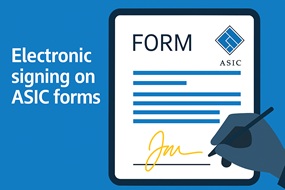
Starting your business in Australia could be exciting and challenging. One of the most common types of business structure that people choose to register is a company. Company registration can be complicated, and several key pieces of information are essential to know.
This article (updated in 2024) explains the types of companies you can set up in Australia and covers the requirements for an Australian company register.
It also discusses the rules for naming your company, outlines the officeholder positions and their responsibilities, and describes the types of shares you can hold and what beneficial ownership of shares means. With our solid experience in company and business registration service, we are writing this article to help business starters smoothen the process of opening a company in Australia.
1. Types of company structures
Under the Corporations Act 2001 (Cth) there are two main categories of companies – proprietary limited (Pty Ltd) and public companies. About 90% of the companies that are created and registered in Australia are private companies. These companies have the “Pty” abbreviation at the end of the company name.
For proprietary companies, there can be:
- a proprietary limited company, in which the liability of its members is limited to the number of shares and share capital that they hold. For example, if one shareholder holds 100 shares that they purchased at $1.00 each, their maximum amount of liability is $100; or
- an unlimited proprietary company with share capital, where the liability of the members is not limited. Upon insolvency, these members will be liable for any and all debt accumulated by the company.
There are also several types of public companies, such as public companies that are limited by shares; public companies that are limited by guarantee (where there is a fixed amount that members have guaranteed to contribute to the company upon winding up); unlimited public companies with share capital; and no liability companies (such as mining and resource companies).
2. Requirements of ASIC Company in Australia
In Australia, all companies are governed by the Corporations Act 2001 (Cth) which sets out the rules and requirements for the operation of a corporate entity. This includes:
- The registered office must be located in Australia
- The Australian Securities and Investments Commission (ASIC) needs to know specific information. This includes the registered office, the company members, and the names and some personal details of each officeholder. ASIC should also be informed of any changes to this information.
- The company must maintain current financial records. These records should accurately show transactions and the company’s financial position and performance.
- The company must remain solvent and be able to pay its debts
- The interests of the company are top priority
- The officeholders must use the information they obtain through their position properly and in the best interests of the company.
To register a Pty Ltd company, you must have:
- at least one member (ie, shareholder)
- not more than fifty non-employee members
- at least one director ordinarily residing in Australia, and
- if a company secretary is appointed, he or she must reside in Australia.
For public companies, the rules and requirements are slightly different, and there must be:
- at least one member
- at least three directors, of which the majority reside in Australia
- at least one company secretary
- an auditor
- all company secretaries must ordinarily reside in Australia, and
- the registered office must be open to the public during certain hours.
3. How to register a company name
When registering for a company name in Australia, there are several things to consider.
The first is name availability. You cannot register a company that has a name that ASIC considers is identical to, or too similar to, another company’s name. You also cannot register a company name that is identical to an existing business name unless the holder of the business name is a director or member of the proposed new company.
There are also restrictions on certain words or terms, such as “Royal,” “Made in Australia,” and “Trust,” as they can be misleading about the company’s activities. Generally, to use a restricted word, you must obtain Ministerial consent.
ASIC company name search is a useful tool for checking the availability of your company name.
If you are not quite ready to register a company but wish to register the name, you can apply to reserve the company name. A company name reservation lasts for two months and the current ASIC registration fee for company name is $61.00. If you wish to register a company using a reserved name, the person who initially applied to have the name reserved must confirm that the reservation has been withdrawn.
4. Officeholder requirements for registering a company
To be eligible to hold an office (such as director or secretary) in a company, an individual must:
- be over the age of 18 years, and
- consent to taking on the roles and responsibilities of being an officeholder.
You can be deemed “ineligible” to hold such a position if you:
- are an undischarged bankrupt
- have entered into a personal insolvency agreement under the Bankruptcy Act 1966 (Cth) and have failed to comply with these requirements
- have been banned by ASIC or a court from managing corporations under the Corporations Act 2001 (Cth), or
- have been convicted of various dishonesty-related offences, such as fraud, which can result in an automatic ban of five years.
Directors are appointed by the members (ie, the shareholders) of the company. They are subject to a number of duties, as outlined below.
Secretaries play a vital role in the governance of a company and in supporting the effectiveness of the board and its committees. The role of the company secretary should include:
- advising the board and its committees on governance matters
- monitoring that board and committee policies and procedures are followed
- coordinating the timely completion and despatch of board and committee papers
- ensuring that the business at board and committee meetings is accurately captured in the minutes, and
- helping to organise and facilitate the induction and professional development of directors.
Public Officers hold a slightly different role as they report to the Australian Taxation Office (ATO). To operate a business in Australia, a company must appoint a public officer.
He or she is the company’s representative to the ATO and is responsible for the company’s obligations under the Income Tax Assessment Act 1936 (Cth). The public officer ensures that the company complies with the Act and is liable for any violations. Ordinarily, a resolution is passed at a meeting of the directors appointing the public officer.
Alternate Directors can be appointed to act in the capacity of a director for a set period of time. This appointment can include all or some of the director's powers. These powers relate to the company and its daily operations.
5. Directors’ duties
There are several key responsibilities that directors and those who hold similar positions owe to their respective companies. Some are listed below, but this should not be considered an exhaustive list of all the directors’ duties owed to a company and its members.
Directors must:
- act in good faith
- act for a proper purpose, and
- act in the best interests of the company.
The Corporations Act 2001 (Cth) also imposes other duties, such as:
- the duty to avoid conflicts between the interests of the company and a director’s own personal interests
- the duty to prevent the company from trading while insolvent (which is when a company cannot pay its debts when they fall due), and
- The duty to exercise care and diligence in the role of director, so that the company can function in accordance with the law.
6. Share classes and rights
When a company is created with share capital, it holds the power to issue shares to various eligible persons and entities. Shares give those who hold them an entitlement to a proportion of the profits generated by the company.
A company can issue numerous classes of shares, which can have different entitlements attached to them. If a company chooses to have multiple classes of shares, they must describe the entitlement attaching to each class. These rights are outlined in the company’s constitution.
The Patricia Holdings multi-class constitution has Preference, Ordinary, and A-F Class shares, all of which confer different rights on the shareholders. The point of dividing shares into classes is to allow a company to place restrictions on shareholder entitlements in relation to:
- repayment of capital
- dividends from profits
- accrued dividends
- participation in surplus assets or profits
- attending general meetings and receiving documents
- voting
- redemption, and
- restriction.
7. Beneficial ownership of shares
A “beneficial owner” is a legal term whereby specific property rights ("use and title") in equity belong to a person even though the legal title of the property belongs to another person or entity. In layman’s terms, a beneficial owner holds the rights to benefit from the asset financially, while another individual or entity holds the legal rights.
Beneficial ownership is often seen in trust relationships, where an individual or entity holds the legal title to all assets held, while others hold rights to the benefits of these assets. These assets can range from property to shares, to liquid money.
The easiest way to know whether shares are beneficially held is to ask the question – will I receive financial benefits from these shares? If the answer is yes, then it is most likely that you are the beneficial owner of the shares.
If the answer is no, then it is more likely that you are the non-beneficial owner who is holding the legal rights for the beneficial owner. In order for a trust to hold shares in a company, the trustee(s) of the trust must be named as the non-beneficial owner of the shares.
8. ASIC Company Fees
The 2024 ASIC company incorporation fees are as follows:
- Pty Ltd company and Public company limited by shares - $597.00
- Public Company Limited by Guarantee - $491.00
After the company registration, another ASIC company fee you must comply with is the ASIC Annual Review fee. Depending on the company type, the annual review fee will change:
- A proprietary company - $321
- A special purpose company (proprietary) - $65
- A special purpose company (public) - $61
- A public company - $1,492
- A Corporate Collective Investment Vehicle - $1,492
Setting up a company for the first time can be daunting, and knowing a registration service that can help you navigate these confusing waters is invaluable. Patricia Holdings has over five decades of experience creating companies and business registers in Australia. Patricia Holdings can now help you register a company online quickly in a few easy steps.
Its team members are well-equipped to assist you with any enquiries regarding your company and business registration in Australia and the best way to go about it.
Patricia Holdings has the experience and knowledge to give you peace of mind when establishing your company. Click here to register an Australian company or contact our Business Support Team to learn more.



